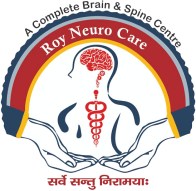Dizziness / Vertigo
Vertigo and dizziness are common sensations of imbalance and disorientation that can significantly impact an individual's daily life.
Vertigo and dizziness are common sensations of imbalance and disorientation that can significantly impact an individual's daily life. While these terms are often used interchangeably, they can refer to different types of sensations and underlying causes. Vertigo specifically describes the feeling of spinning or whirling, often accompanied by nausea and vomiting, while dizziness is a more general term for light headedness, unsteadiness, or a sense of floating.
Vertigo is most commonly caused by problems with the vestibular system, a complex sensory system within the inner ear responsible for maintaining balance and spatial orientation. The most common vestibular disorder is benign paroxysmal positional vertigo (BPPV), which occurs when tiny calcium particles (otoconia) dislodge from the inner ear's balance mechanism and move into the semicircular canals, causing brief episodes of vertigo triggered by specific head movements.
Meniere's disease is another cause of vertigo, characterized by episodes of severe vertigo, ringing in the ears (tinnitus), hearing loss, and a feeling of fullness in the affected ear. The exact cause of Meniere's disease is not well understood, but it is believed to involve an imbalance in the fluid within the inner ear.
Central vertigo, on the other hand, results from issues within the brain itself, such as a stroke, migraine, multiple sclerosis, or a brain tumor. These types of vertigo are often accompanied by additional neurological symptoms and require urgent medical attention by Vertigo specialist.

Symptoms by Best neurology specialist:

low blood pressure

Anemia

Dehydration

Medications

Low blood sugar

Cardiovascular issues

Mental health conditions

panic attacks
Preventive measures include:

Sit Down

avoid addictions & unhealthy habbits

Drink water

Exercise daily

Eat breakfast

consume ginger


